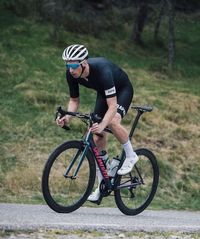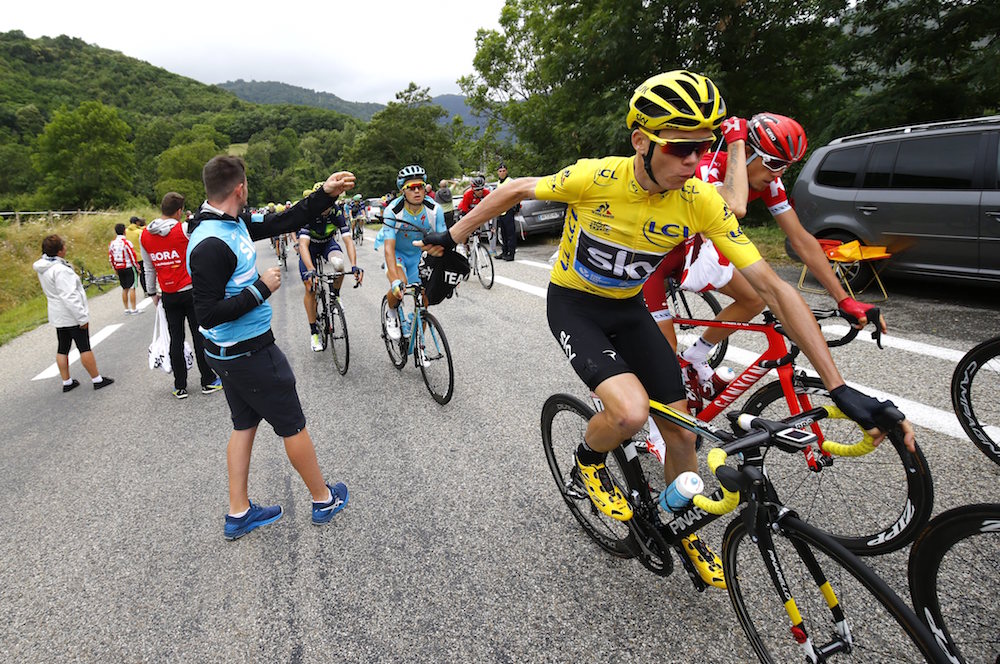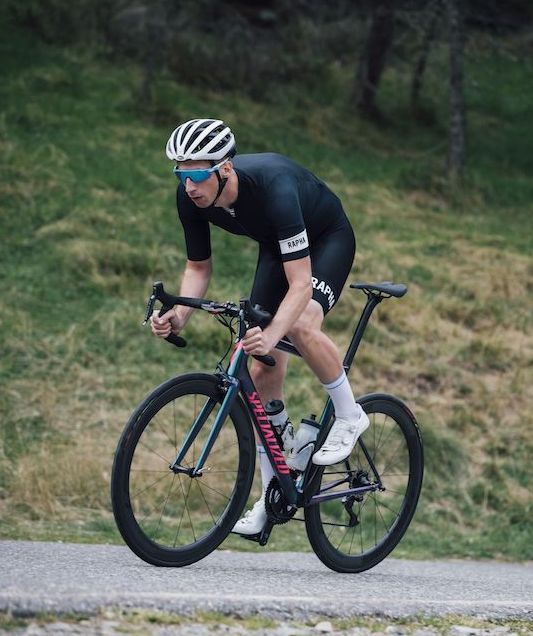This is what it took to fuel Chris Froome and Team Sky through the Tour de France
Team Sky and Chris Froome ate a combined total of 1,000 energy gels and more than 500 bars during their 2016 Tour de France success.


By James Rider
It goes without saying that the three-time Tour de France champion Chris Froome required momentous amounts of food and fluid to get him through the 3,000 kilometre-plus race around France.
Cycling for six hours a day for three weeks with only two rest days requires a range of nutrition products to ensure riders remain at the top level throughout. Each rider on average consumes 5,000 calories per day – some days up to 8,000 - so ensuring each rider eats and drinks sufficiently is essential to success.
Froome and his Sky teammates were fuelled by Science in Sport (SiS) products for the first time this year, aiding hydration, energy and recovery.
>>> The complete guide to sports drinks: Recovery
Speaking on the importance of nutrition, Froome said: “You push your limit on a Grand Tour like the Tour de France, which is why nutrition is everything. Until you’re in this position, you don’t appreciate the importance of sports nutrition in aiding your performance and the marginal gains that it delivers.”
Natural nutrition for peak performance
The latest race content, interviews, features, reviews and expert buying guides, direct to your inbox!
During the 21 stages, Team Sky went through a whopping 1,000 gels, including isotonic (these gels deliver energy to muscles twice as fast as regular gels), electrolyte, and energy and caffeine gels to ensure energy and carbohydrate levels were continuously topped up. On top of this, 570 energy bars were consumed.
>>> Science in Sport launches new energy and electrolyte gel
On the toughest stages, riders can get through ten litres of fluid in order to replenish that lost through sweating and breathing. Bottles are typically filled with electrolyte tablets to ensure that riders do not become dehydrated. Team Sky drank 940 electrolyte servings and 300 hydro servings in order to keep fluid balanced.
Nutrition after a stage is just as important as nutrition during it. After stages, a variety of products are consumed in order to aid muscle recovery and to restore glycogen stores. The British team went through 180 rapid recovery servings and 210 overnight protein servings, helping to repair damaged muscle tissue.
After 21 days of riding and eating a mountain load of sugary protein goodness, they deserved their celebratory beers on Sunday.
Visit SiS for more info.
Follow on Twitter: @richwindy
Richard is digital editor of Cycling Weekly. Joining the team in 2013, Richard became editor of the website in 2014 and coordinates site content and strategy, leading the news team in coverage of the world's biggest races and working with the tech editor to deliver comprehensive buying guides, reviews, and the latest product news.
An occasional racer, Richard spends most of his time preparing for long-distance touring rides these days, or getting out to the Surrey Hills on the weekend on his Specialized Tarmac SL6 (with an obligatory pub stop of course).
